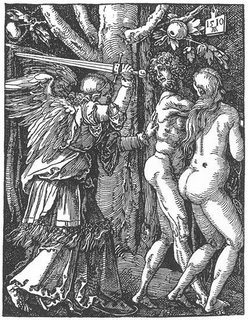
T-2 has a new desk. It’s not really a brand, spanking, new desk, but it is a new-to-him desk.
Classroom discipline is not the end in itself. No teacher wants mindless robots, least of all me. The joy in having the field and woods close by is no gym program is as beneficial as boys being boys. I enjoy the rough-n-tumble energy of boys. Still, we have a motto in my class: Class time is for learning; playtime is play time (Ecc 3:1).
Our Grammar curriculum requires the attention of young minds. There is rote memorization, though it is made fun through jingles. We proceed incrementally. We don’t diagram sentences. Instead we “classify” them with labels. There is a specific question and answer “flow” that must be learned. We practice daily.
The first test slipped by unremarkably. Tucker and Shawn enjoyed Grammar and looked forward to it. The Troublemint Twins thought Grammar was a snoozer. T-2 sat in the first row, diagonally away from T-1. He’d delight in turning around and starting a chorus.
“Wonk…”
“”Wonk,” T-1 echoed. And so the two goose-boys continued until I captured their attentions and clipped their tail feathers again.
Warnings at the beginning gave way to immediate disciplinary measures at the first nasally note. These guys were stubborn, and tender age held no sympathy over me with what was becoming a daily habit.
Finally the Grammar tests became harder. The sentences were no longer noun and verb, but also included an adverb. Then the Twins both flunked a test. They not only giggled themselves to insensibility throughout the entire test, they scribbled so badly on their papers I couldn’t read which label went where. Discipline has its place.
T-2 was crushed. He was certain his labels were in the proper place if I would only just look. He begged. He pleaded. “I’m telling you, Deaconess, I just know the answers are right.” Not by any stretch of the imagination I could use.
Moreover, T-2 also knew he had the best printing skills in the class, so this paper was an embarrassment. Well he should, too. His Kindergarten year was spent in our system. A good bulk of that time was spent writing sentences for infractions then, too: “I will obey my teacher.” “I will not tell lies.” At least his hand was well-trained. His parents would follow up at home. If the sentences weren’t written neatly enough, he would write them all over again. He had a beautiful “hand.” Yet now he had turned in a Grammar test with chicken scratches and he knew his father would be justifiably upset with.
T-1 was less perturbed. Being raised by grandparents has its advantages. He had been adopted by them about a year earlier, even referred to them as “Mother” and “Father.” For the moment he didn’t perceive any imminent threat of danger to his present comfortable position.
The next morning T-1 walked into the classroom with a new attitude and a new phrase added to his vocabulary.
“I know where I don’t want to go. Al-a-ternative School. That’s where they make you sleep on a hard bed, they give you bad food, and you don’t get a snack. And you don’t get to see your mommy and daddy.”
I asked him where he’d gotten the notion about Alternative School. Turned out his father told him that boys who played around in class and didn’t learn lessons were headed there.
When T-2 arrived with his dad, the first thing T-1 told him was, “Deaconess knows someone in Al-a-ternative School. Be careful. You do not want to go there.” He filled T-2 in on the details. T-2’s father listened in, and confirmed that it was a place where boys who couldn’t learn to obey their parents and teachers should go, and that they surely did not want to go. That meant both sets of parents were now “on board.” Works for me. One of our church members teaches at an Alternative School. I told the Troublemint Twins this fact, and pulled out a sticky note. I wrote down:
Alternative School
601-555-2583
Mrs. Johnson
T-2’s dad grinned, and he winked at me. The Twins’ eyes grew round and frightened.
“You know about Al-a-ternative School? You know someone there?” T-1 asked.
“Yup.”
The boys factored that information, then turned slowly away.
The sticky label remains posted near my desk. I want the boys to see it daily.
Now, one thing about T-2 is that he can't seem to keep his hands still. He constantly fidgets with something. When he was in K-4 and Kindergarten it was a chore to keep his hands away from other children. Now that he is in First Grade it has become a struggle to keep his hands on top of his desk and not into mischief beneath it.
When we recite the catechism at the beginning of the day he will start with his hands neatly folded on top of his desk, sitting up straight. Soon the hands disappear into the mouth of the desk, and the fluttering begins. That is quickly replaced by all-out wiggling as his elbows are swallowed into the cavern. Next his entire head is suddenly sucked inside as he disappears to go spelunking.
Finally the day had come to end this nonsense. He was deep inside his desk collecting stalagmites when I picked up it up and dumped it. Out he rolled on top of four pages of unfinished homework. A pile of pink eraser shreds poured out midst his crayons, Latin vocab cards, stubby pencils, and an acorn. Jacob, the oldest student, read my intentions and pointed to the room across the hall.
“The Desk?” he asked.
“You bet,” I replied.
T-2 looked horrified.
That was way too much code being spoken to suit his comfort-range.
The Desk is intimidating according to T-2's experience. It  is one of those old fashioned steel contraptions with the chair attached. Its desk has a flip-top. It is one these things that is not like the others. It is an alternative. It is an Alternative Desk for Alternative Students Who are Headed For Alternative School. T-2 seemed to realize this without me even telling him it.
is one of those old fashioned steel contraptions with the chair attached. Its desk has a flip-top. It is one these things that is not like the others. It is an alternative. It is an Alternative Desk for Alternative Students Who are Headed For Alternative School. T-2 seemed to realize this without me even telling him it.
He paled.
He thought there was a glimmer of hope- she has GOT to be kidding- until I instructed him to put his things inside it.
“In THAT?” he asked.
“She means it, kid. You better do as she says,” Jacob advised. Then he pointed to the sign that displayed the two governing rules of the class.
· Rule Number One: The teacher wins all arguments.
· Rule Number Two: You can’t break Rule Number One.
T-2 slowly complied. When he finished he sat down in his new seat. He didn't like it. He couldn't control it. It doesn't “scoot.”
“I don't like this desk.”
“That's tough. You think that matters to me?” The First Grader next to him grinned, the one behind him was swinging his feet in time to some unheard music. T-1 was busy watching a chameleon run across a window.
T-2 looked back at T-1, then down at his desk. He straightened himself up, and sighed. “I'm going to earn my real desk back.”
Two days later it was the day before his seventh birthday. On that day I realized the sheer joy of that desk. T-2 had silliest day yet and I had my “this is it, buddy” point with him. After repeated incidents in which he disrupted the class, T-2 giggled away another Grammar test, and so failed it. He answered part of the test. Then he decided it was time to talk and play with those not taking the test. He knows the rules about test-taking. They are repeated each time prior to the test. His test was over when he started his playtime.
That's when he entered Tough First Grade. In the midst of his giggle fest I crept up behind him. Gently I called his name, three times. He did not respond. I lifted the lid of his desk slightly, then shut it with a BANG! Every child in the class but T-2 knew it was coming. I leaned my elbows on top of the desk, looked straight into T-2's face, grinned and asked, “Hello, little boy... got your attention?”
“Ummmm…[gulp] yes, ma'am.”
“Good.” I inched forward on the desk. T-2 tried to scoot away, but the chair was attached to the desk. He was trapped. “Now that I have your attention, maybe you'll listen. Silly time is over. You've just entered a whole new level of learning. I'm done being patient with you. Now we get tough.” I left it at that. Anticipation is a powerful ally.
The next morning T-2 arrived bright and early with his dad. I sat him down next to me and explained his new rules.
1. Start giggle-time during teaching time and he will be excused from class
2. Keep both eyes on me at teaching time or he will be sent out of the classroom
3. If he is sent out of the classroom during teaching time then he is on his own figuring out how to do the work sheets or tests; I will not help him
His dad, as ever, was behind me the whole way. “You'd best work hard to earn your desk back, and to stay in this classroom. This is your first day of being seven. Time to act like it. You know if you play in school you will work at home. Make a choice. One way or another you will do the work. Wouldn't it be nice to have playtime with family instead of work?”
So far this call to repentance has been effective. If T-2 starts up during a lesson, out he goes. He's too social to like that. When it comes time for completing papers and tests he likes his stars, smiley faces, and any other indicators that he's made no mistakes. Even homework needs a star on it. So not receiving help from me is hindering him. Plus, he can't hide the fact that he's spent time outside the classroom from his parents. I don't allow the students to erase mistakes. If they have an error, they write the correction alongside it. After T-2 has had to sit out, his papers are a series of red X-s and corrections. Eventually he does get the right answer. There is benefit in this as he is working his way through the problems, but he doesn’t like the red marks. It is forcing him to read on his own without overhearing the others. He has to think things through more clearly on his own. I will still point him with directed questions, but he loses much by not being in the classroom. And we lose much by him not being with us.
What this is also telling me is that he has the capacity of great concentration and attention to detail. This child worked out a multi-function Math problem on his own that the class has not yet learned to do. He's simply defiant and given to laziness. He thinks if he complains enough I will cave and do it for him. The laziness feeds an uncertainty in his accomplishments. What he's learning is that he can do it for himself. Doing it himself has raised his self-confidence.
T-2's learning he wants to stay in the classroom. He doesn't like to miss class time. In order to remain in the classroom he's learning to submit to the authority of the classroom, the teacher. Now when he has to go out- and I am send him out for even the slightest infraction to keep him in the tightest of lines- T-2 feels the sting of it even deeper. His papers are messy. He doesn't get a star. The next day the teaching is generally smoother.
Still, he is T-2...































